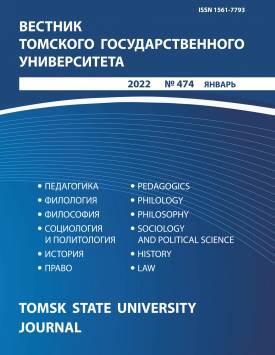Mobile applications as a means of activating students' independent work in physical culture
Independent work on a physical culture elective course in higher education promotes students' engagement in regular physical exercise. The most important aim of organising independent physical culture work is to encourage students to be engaged in independent physical activity. From a lecturer's perspective, the difficulties in organising/supporting students' independent work are advocated by the lack of possibilities to implement health and safety control, to support them permanently, to adjust the content to the students' level of fitness, to assess the quality of the independent physical culture work. Due to all those reasons, the suggested movement assignments for independent work can only be recommended. Data from the scientific and methodological literature suggest that mobile applications as a means of encouraging students' independent physical activity have not been popularized in higher education. The indicated reasons are the insufficient level of scientific and methodological research in this area, the lecturers' lack of skills of working with Internet resources and mobile applications, the low quality of Internet connection, and the lack of gadgets necessary for the interactive work with the applications. As a result of a questionnaire measuring the aspects of mobile fitness applications' usage, the following items were defined: the level of students' involvement in an independent physical work of any type; frequency and the way of using mobile applications; the most popular category of mobile applications; and the benefits and disadvantages of fitness mobile applications. The advantages of using mobile fitness applications for the encouragement and promotion of students' independent physical activity are outlined. The role, and the objectives of a lecturer in applying a mobile fitness application as a means of activating students' independent work are defined. Due to the increasing importance of independent work of students in a physical culture elective course, there emerged an urgent need to encourage students' independent physical activity. Mobile applications may be used as a means of promoting a more active use of physical exercises in everyday students' routine. The study found that most of the respondents (84.4 %) possess a sufficient experience of mobile fitness application usage. The respondents stated their positive experience; outlined the effective impact on structuring the lifestyle, improving regularity of physical activity, the convenient tracking the change in functional indicators, volume, and intensity of the exercises (77.3 %). Also, evidence was detected that there is an increase in the number of students who use mobile fitness applications from the first year to the third year, from 60.3% to 93.1% respectively. However, despite the distinct advantages, mobile fitness applications are not widely employed in the educational practice.
Keywords
independent work of students, independent physical activity, physical culture elective course, mobile fitness applicationsAuthors
| Name | Organization | |
| Smirnova Elena I. | Omsk State Pedagogical University | s_elena7@mail.ru |
| Sukhostav Olga A. | Omsk State Pedagogical University | os-66@mail.ru |
| Matyunina Natalia V. | Omsk State Pedagogical University | matyunina@omgpu.ru |
References

Mobile applications as a means of activating students' independent work in physical culture | Vestnik Tomskogo gosudarstvennogo universiteta – Tomsk State University Journal. 2022. № 474. DOI: 10.17223/15617793/474/3
